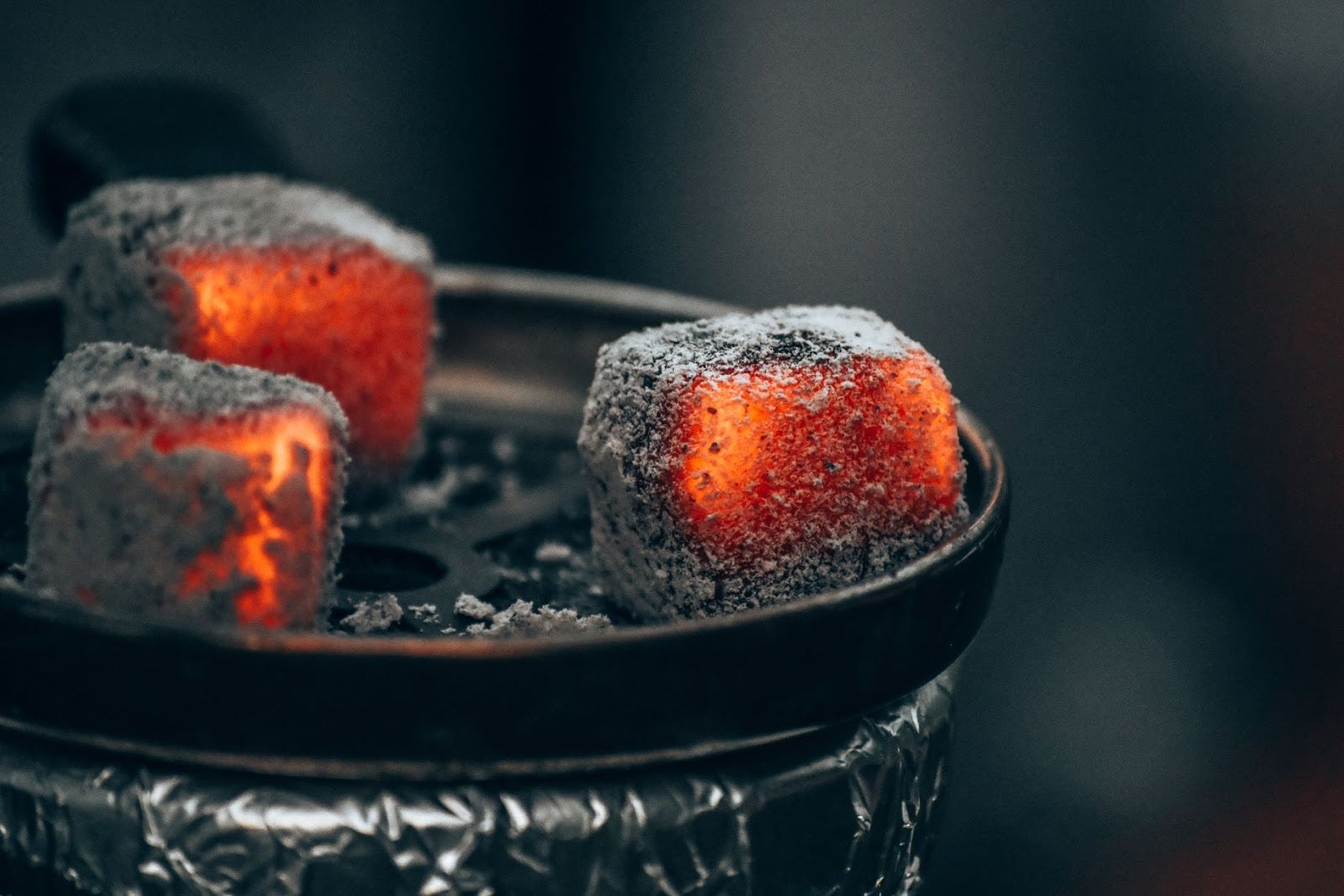
Which is better for Shisha flavor? Coconut Charcoal or Coal Activated Carbon
Shisha enthusiasts often find themselves navigating the vast landscape of accessories, seeking the perfect complement to their precious shisha flavors. Among the many considerations, the choice between coconut charcoal and coal-activated carbon stands out. Each comes with its unique characteristics, impacting the overall shisha experience. Let's dive into the details and explore the pros and cons of these two shisha fuel options.
The Charcoal Enigma
Coconut Charcoal: A Tropical Twist
Derived from coconut shells, this type of charcoal has gained popularity as an eco-friendly charcoal that has the ability to burn hotter, providing a robust heat source. The result is a rich, flavorful shisha experience. Coconut charcoal is also known for its longevity, allowing for an extended shisha session without compromising on heat.
Coal Activated Carbon: The Neutral Player
On the other end, coal-activated carbon is prized for its neutral taste, ensuring that the shisha flavor remains untainted. It's an excellent choice for those who want a purer taste without any interference from the fuel. However, it might not reach the same temperature levels as coconut charcoal, affecting the session's intensity.
Shisha Flavor Finesse
Coconut Charcoal: Aromatic Intensity
The high heat output of coconut charcoal contributes to an intense and aromatic shisha experience. The robust flames work wonders in extracting the nuances of complex shisha flavors, making it a favorite for those who appreciate the depth of taste. Yet, this intensity might be overwhelming for some, especially if subtle flavors are preferred.
Coal Activated Carbon: Purity Personified
If purity of flavor is your top priority, coal-activated carbon steps up to the plate. Its neutral nature ensures that the shisha taste remains unaltered, allowing the flavors to shine through in their unadulterated form. This neutral nature makes it an ideal choice for those who value the authenticity of each puff.
The Environmental Edge
Coconut Charcoal: Eco-Friendly Flames
For environmentally-conscious shisha enthusiasts, coconut charcoal has the upper hand. Being a byproduct of coconut processing, it's considered a sustainable charcoal choice. Coconut charcoal will always appeal to individuals who want their shisha sessions to align with eco-friendly practices.
Coal Activated Carbon: The Byproduct Advantage
While coal-activated carbon might not be as directly tied to a renewable resource, it does have the advantage of being a byproduct of coal, utilizing a material that might otherwise be wasted and adding a layer of resource efficiency to its profile.
Decision Dilemmas
The choice between coconut charcoal and coal-activated carbon ultimately boils down to personal preferences. If you seek an intense, heat-packed experience and don't mind a bit of environmental consciousness, coconut charcoal might be your go-to. On the flip side, if flavor purity is your holy grail and you're open to a neutral, slightly less intense session, coal-activated carbon is a strong contender.
Explore A Personalized Palette
As you navigate the nuances of shisha enjoyment, the choice between coconut charcoal and coal-activated carbon opens the door to your personalized palette. Delve into your preferences: the desire for an intense flavor burst, a commitment to eco-conscious practices, or an unwavering quest for flavor purity.
Imagine this-the shisha world is continually evolving, and now, innovations like OOKA present a charcoal-free shisha alternative, a testament to the ever-expanding horizon of shisha possibilities.
Beyond these traditional options, the contemporary shisha landscape unfolds with solutions that redefine your smoking experience. Explore, experiment, and elevate your shisha sessions into realms uncharted. The next time you light up, your choice of fuel becomes not just a necessity but a distinctive note in the symphony of flavors.